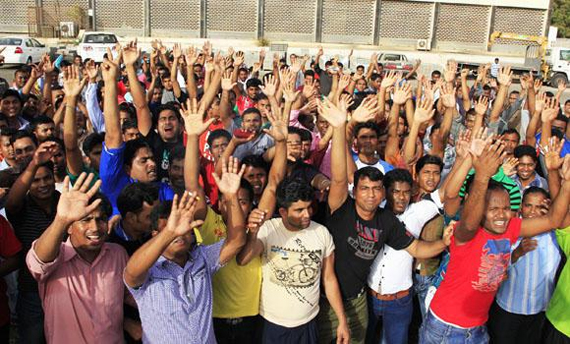
Jeddah, Jun 20: A call for extension of the July 3 amnesty deadline got the backing of businesspeople yesterday during their meeting with Labor Ministry officials.
Muhammad Al-Subhi, a businessman, said that the mechanisms used for normalization are incorrect and disorganized. “The mechanisms were only announced six weeks after the start of the grace period. We therefore ask that the period be extended."
The meeting took place at the ministry's offices.
Madawi Al-Hassoun, a businesswoman, said something should be done to help the dependents of expatriates born in the Kingdom and those living here legally but who are barred from working.
"About 80 percent of those who work in various professions belong to this category and have high qualifications and extensive expertise. This category is worthy of more attention, especially since Saudi Arabia is the only country they have ever known," she said.
She also criticized the use of some words by the ministry, such as "raided" which, she said, is inappropriately used against the public or the relevant parties. “This is a word more fit to be used in connection with drug traffickers or terrorist groups."
Meanwhile, at the meeting Abdulmunim Al-Shehri, director general of the labor office, repeated certain parts of the concessions announced by the government. He said workers have the right to transfer their sponsorship if their sponsors withhold their passports and residence permits.
"The amnesty is meant for certain categories of expats, like those who were reported to have run away, who absented themselves from work, violators among domestics, or those who overstayed in the Kingdom after performing Haj or Umrah," he said.
Asked if some nationalities from Chad or Bangladesh, for example, are exempted from rectifying their status, he said "this grace period is for all nationalities to correct any abnormalities in their status in general. But they must do so by the deadline."






Comments
Add new comment